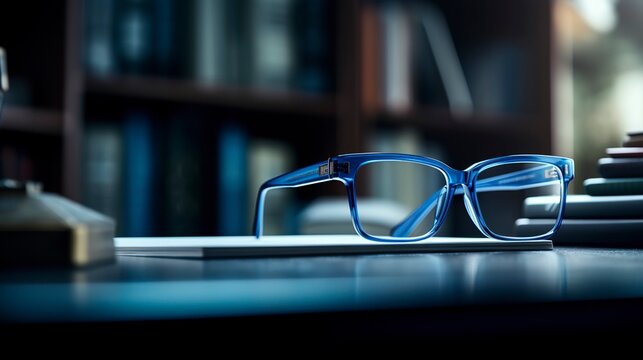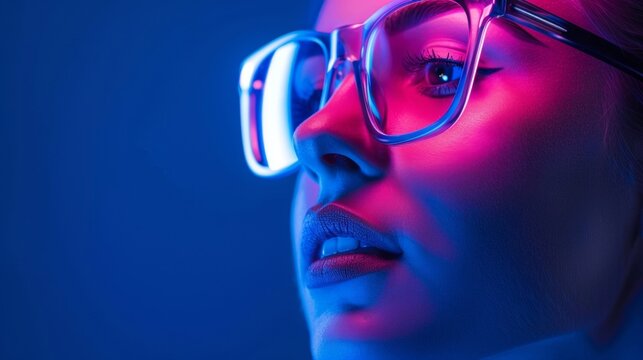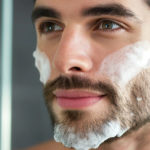- General
- Updated on June 13, 2025
How Blue Light Glasses Can Reduce Eye Strain and Improve Focus

In today’s always-on digital world, many of us spend hours each day staring at screens—from laptops and tablets to smartphones and TVs. While this digital immersion keeps us connected and productive, it also exposes our eyes to an overabundance of blue light, a high-energy visible (HEV) light emitted by most modern screens. Over time, this exposure can contribute to digital eye strain, headaches, disrupted sleep, and even decreased productivity. Enter: blue light glasses—a simple yet increasingly popular tool designed to filter out this potentially harmful light and offer relief.
In this article, we’ll explore how blue light glasses work, why they matter, and how they can help reduce eye strain and sharpen your mental focus.
What Is Blue Light and Why Is It a Problem?
Blue light is part of the visible light spectrum and is characterized by its short wavelength and high energy. While natural blue light from the sun helps regulate our sleep-wake cycle, excessive artificial blue light—especially after sundown—can interfere with the body’s natural rhythms.
Some of the key concerns associated with prolonged exposure to artificial blue light include:
- Digital eye strain (computer vision syndrome)
- Blurred or double vision
- Dry, irritated eyes
- Frequent headaches
- Reduced concentration and fatigue
Staring at screens for long periods forces your eyes to work harder. Your blinking rate decreases, your pupils constantly adjust to screen brightness, and your visual muscles stay engaged without rest—all of which contribute to discomfort and mental drain.
What Are Blue Light Glasses?
Blue light glasses, also known as blue light blocking glasses, are specially designed eyewear that features lenses with a filter or coating to block or absorb blue light. Depending on the brand and lens technology, these glasses may filter out a portion or the majority of blue light in the 400–500 nm wavelength range.
Some lenses appear clear, while others have a slight amber or yellow tint to offset the blue tones. These glasses can be worn by anyone—whether you have a prescription or not—and are especially helpful during long periods of screen use.
How Blue Light Glasses Help Reduce Eye Strain

1. Filter Harmful Blue Light
The primary benefit of blue light glasses is their ability to filter the wavelengths most likely to cause eye fatigue. By reducing the intensity of blue light reaching your eyes, these lenses help minimize glare, optimize contrast, and ease the effort your eyes need to make when processing digital content.
2. Reduce Glare and Improve Visual Comfort
Glare from LED screens is a major contributor to eye discomfort. Blue light glasses often come with an anti-reflective coating, which reduces glare and improves clarity. This allows your eyes to focus more easily, reducing strain during tasks like reading, writing, or designing.
3. Support a Healthy Blink Rate
When focused on screens, our blink rate drops by nearly 60%, which can lead to dry, irritated eyes. By easing visual stress, blue light glasses may encourage more natural blinking, keeping your eyes moist and reducing the risk of discomfort over time.
Boosting Focus and Mental Clarity
The benefits of blue light glasses extend beyond eye comfort. Reducing visual strain also contributes to improved mental focus and sustained productivity.
1. Less Fatigue = Better Focus
When your eyes aren’t constantly working overtime to manage screen glare or light intensity, your brain has more energy to devote to cognitive tasks. This can result in better concentration, longer attention spans, and fewer headaches caused by eye fatigue.
2. Improved Sleep Quality
One of the lesser-known impacts of blue light exposure is its effect on melatonin, the hormone that regulates sleep. Blue light—especially when absorbed late in the day—can disrupt your circadian rhythm, making it harder to fall asleep. Poor sleep contributes to brain fog and poor focus.
Wearing blue light glasses in the evening can help reduce this interference, leading to more restful sleep and better cognitive performance the next day.
Who Should Consider Wearing Blue Light Glasses?
While virtually anyone who spends time on screens can benefit from blue light glasses, they’re especially useful for:
- Remote workers and office professionals
- Students and educators
- Gamers and digital content creators
- Night-shift employees
- People with sensitivity to screen glare
Even if you don’t experience severe symptoms, using blue light glasses can be a preventative measure to protect long-term eye health.
Tips for Maximizing Their Effectiveness
To get the most out of your blue light glasses, try the following habits:
- Follow the 20-20-20 rule: Every 20 minutes, look at something 20 feet away for 20 seconds.
- Take regular screen breaks throughout your day.
- Adjust screen brightness and contrast to comfortable levels.
- Use screen filters or “night mode” settings in the evening.
- Wear your glasses consistently, especially during extended screen use.
Also Read: Why India’s ACs Are Getting Warmer: The Reasons Behind the New Temperature Rule
Conclusion
In a world where screen time is nearly unavoidable, blue light glasses offer a simple, non-invasive way to protect your eyes, reduce fatigue, and sharpen your focus. While they’re not a cure-all, incorporating them into your daily routine—especially if you’re frequently glued to digital devices—can lead to real, noticeable improvements in visual comfort and mental clarity.
Whether you’re grinding through work emails, studying for finals, or enjoying a late-night Netflix binge, your eyes will thank you for the added protection.
Join the discussion
Related Articles
No results available
ResetTrending Articles


- General
- Updated on February 23, 2026


- General
- Updated on February 20, 2026


- General
- Updated on February 18, 2026


- General
- Updated on February 17, 2026


- General
- Updated on February 10, 2026


- General
- Updated on February 14, 2026


- General
- Updated on February 7, 2026


- General
- Updated on February 5, 2026


- General
- Updated on February 2, 2026


- General
- Updated on January 29, 2026
No results available
Reset


